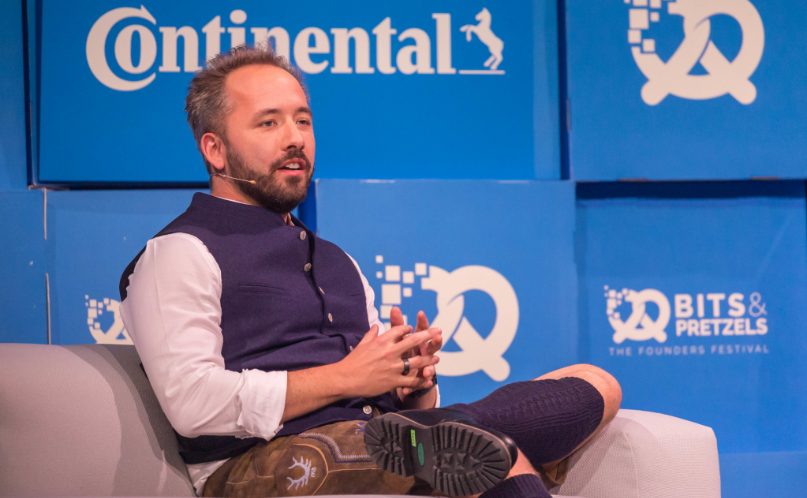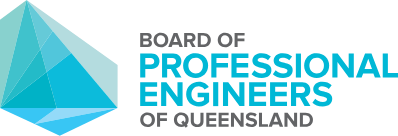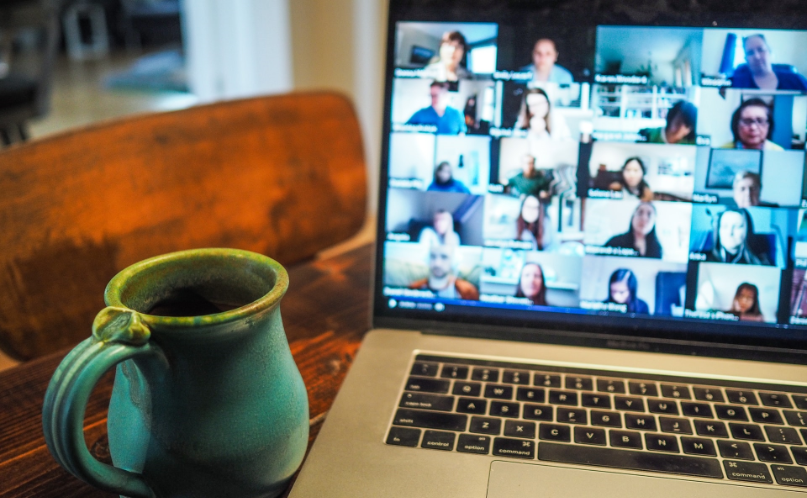10 Jul ‘We’ve gone through a one-way door’
The way we work is changing and we need to adapt, writes the Board’s community representative, Chris Edwards.

As the coronavirus pandemic continues to grip much of the world, Queensland has made great progress in the battle for public health while facing the associated challenge of securing the state’s economy.
The COVID-19 pandemic remains a health crisis that has our Queensland leaders wrestling with their own wellbeing and the health and safety of their employees and project teams. The economic challenges conceived by the pandemic continue to soar – and with them comes much ambiguity about the future of productivity, performance and people delivering our state’s important assets.
Notwithstanding the pandemic, projects in Queensland still face performance issues as owners face numerous challenges in delivering project benefits for their stakeholders. The weight of leadership falls squarely on our professional experience that is challenging even the most sophisticated project owners.
As we all know from our experience the bar for capital project performance will not change. What is changing is the way we work together as a strong community of professionals to best adjust our operating models around procurement, engineering and construction to ensure that we are all responsible for maintaining productivity, performance, the health of our people and our own market relevance as we adjust to working from home.
In June 2020, Dropbox Chief Executive Officer Drew Houston remarked in an interview with Forbes, ‘We’ve experienced the most dramatic possible shift to remote work that you could imagine’.
Houston goes on to say that the current flexible work environments we are experiencing is going to be a permanent shift. ‘We’ve gone through a one-way door.’ Many of us have adapted quickly and are excited about the degree of flexibility, and many are preferring to commute to the office and their project teams as our clients and teams start to transition back to the office. This transition has its own set of adjustments to some of our business traditions.

“The evolution of an entrepreneur”: an interview with Drew Houston, who co-founded Dropbox in 2007. Image courtesy of Marco Verch under Creative Commons 2.0.
… projects in Queensland still face performance issues as owners face numerous challenges in delivering project benefits for their stakeholders.
All the advice on how to shake hands powerfully could be a thing of the past and perhaps not inconceivable that we bow which is common in many east Asian countries. Further, in person meetings continue to be the exception rather than the norm. Like many of my colleagues who have been involved in projects for well over 20 years we all avoided video teleconferences in favour of achieving our requirements over a coffee or a quick phone call. With the tools now available (Zoom, Teams, Skype, WebEx) I have had to adopt very quickly and am now an ‘expert’ on all forms of conferencing via video streaming.
Another adaptation I have had to quickly become accustomed to is leading team events in an entirely different way. Maintaining momentum and motivation via team video teleconferences requires an entirely new skill set. The daunting prospect each day of back to back teleconference calls often with large numbers of project stakeholders has been a challenge I have had to prepare for much more than the usual ‘read the brief’ in the lift heading to the meeting. Video teleconference calls require a higher level of facilitation skills and an ability to engage with all participants enabling everyone the opportunity to contribute. And what about conferences and tradeshows? Our annual journeys to industry and association functions has meant this has no doubt changed forever, replaced by online models of the real-world conferences, complete with learning sessions, virtual exhibitor halls and e-networking experiences. Opportunities to meet and understand your potential client’s requirements could be replaced by Linkedin or other professional platforms. As we all generally work in an office environment, there is likely to have been those people who came to work with coughs and colds and pushed on in the interest of performance and productivity. These times have changed too. It has in the past been seen as a sign of loyalty and commitment to project teams and employers that we showed up unwell and pressed on. This display of commitment could eventually be seen as a sign of disrespect for our fellow project team members. At what point would we require a colleague to don a face mask in the office so as not to contaminate our colleagues?
Over the past couple of months, I have moved my training and development learning activities from traditional in person sessions to online, anytime learning. I benefited from course online with Project Management Institute (PMI), Australian Institute of Company Directors (AICD) and Brightline Initiative. Each of these online courses where challenging and provided me with an opportunity to understand better video learning. Having completed several online courses during the lockdown I can see this move to video training accelerating, the quality of material, testing capability and credible certification all lends itself to a very good alternative to hours out of the office. Self-paced online training is scalable and easily accessed by our teams. The downside being the inability to interact and connect with others.
Despite these adaptable changes, many of our project teams will remain working from home for some time yet, and if they are anything like me, are no doubt going a little stir crazy. Managing client and employer expectations for ourselves in a time of COVID-19 while working from home is a tricky balancing act. In adapting to the right opportunity mindset and remaining productive during the shutdown I have focused on health and wellbeing of both myself and my teams with a firm focus on how we emerge from this crisis better positioned and more resilient. Many of the firms I work with daily are already using a digital twin for rapid iterations and constant monitoring. These types of innovations are supporting the new model of performing and maintaining productivity either from home or the office.
UBS Engineering & Construction Global Research (April 7, 2020) takes the view that aside from potential short-term disruption to construction projects, the pipeline of Australian infrastructure projects will continue and there is scope for additional investment as a means of economic stimulus. As professionals, how we deliver the benefits from these projects in Queensland will depend upon our individual abilities in transitioning to a new approach to project delivery, building team cultures and maintaining performance, productivity and our people’s professional development.
CHRISTOPHER EDWARDS
Community representative
Mr Edwards was appointed to the Board in 2019. Mr Edwards has over 20 years’ experience in non-executive director roles with the not-for-profit sector and professional industry. As an executive with RPS Group, PricewaterhouseCoopers and Hatch Associates he developed global governance experience in the resources industry, infrastructure, environment & planning, commercial, banking and government sectors.

 MY ACCOUNT
MY ACCOUNT

